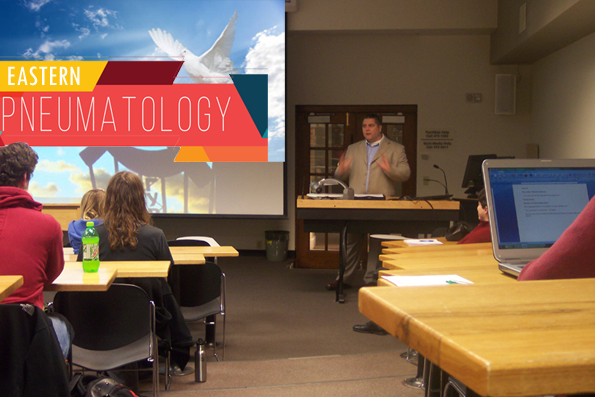Put-up or shut-up (for leaders)
Nothing smacks of poor leadership like a lack of performance. Nobody is perfect, but leaders who consistently fail are not leaders, no matter how much you wish they were. While past performance is not always a certain indicator of future events, a long-term track record of success should not be taken lightly. Someone who has consistently experienced success in leadership roles has a much better chance of success than someone who has not. It’s important to remember unproven leaders come with a high risk premium. Smart companies recognize potential, but they reward performance.
Not paying attention to the person
Leaders not attuned to the needs of the market will fail. As the old saying goes, if you’re not taking care of your customers, someone else will be more than happy to. Successful leaders focus on the consumer experience, which in turn leads to satisfaction and loyalty. The best leaders find ways to consistently engage the consumer and incorporate them into their innovation and planning initiatives. If you ignore, mistreat, or otherwise don’t value your customer base, your days as a leader are most certainly numbered.
The “A” word: Real leaders are accountable
Real leaders are accountable. They don’t blame others, don’t claim credit for the success of their team, but always accept responsibility for failures that occur on their watch. Most of all, leaders are accountable to their team. I’ve always said that leaders not accountable to their people will eventually be held accountable by their people.
Beware the know-it-all leaders
The best leaders are acutely aware of how much they don’t know. They have no need to be the smartest person in the room, but have the unyielding desire to learn from others. I’ve often said, leaders who are not growing cannot lead a growing enterprise. One of the hallmarks of great leaders is their insatiable curiosity. If a leader isn’t extremely curious about every aspect of their organization, trust me when I say there are huge problems on the horizon.
The Non-Chalcedonian Eastern Church: West Syrian (Jacobite)

Dony K. Donev, D.Min.: Eastern Pneumotology Lectures
Eastern Orthodoxy can be expressed in one word: theism. The purpose and meaning of life is to become more like God. Deification is pursued by all means of human existence. This quest for divine likeness often includes the typical for the Eastern Church, speculation on the divinity and humanity of Christ, traditions on the doctrine of the Trinity and non-traditional mystical experiences. They appear in the context of both physical and spiritual characteristics in individual and corporate ecclesiastical environment. The role of the Spirit in the process of deification is threefold and involves: creation, re-creation and theism. Eastern Pneumotology follows the graduate process of theism development. The Spirit is involved in the original creation of the world as well as the new-birth experience. His work however, does not end there, but continues throughout the process of personal deification of the believer.
The Non-Chalcedonian Eastern Church: West Syrian (Jacobite)
The Jacobites viewed the presence of the Holy Spirit in three prime settings. Firstly, He is the agent of the original ex-nahilo creation and the spiritual re-creation in the second birth. Secondly, He is present in the baptism and chrismation. Lastly, He is the Transfigurator of the Eucharistic elements representing the body and the blood of Christ.5 [1]
Our prime source of information on the corporate ecclesiastical Coptic tradition is a document entitled The Odes of Solomon. Interesting to notice in this context of this writings is the fact that the Spirit is referred in a feminine gender.[2] However, this conception declined as the devotion to the person of Mary grew.[3]
Such a devotion is extraordinary noticeable in the life and writings of Ephrem the Syrian (ca. 306-373). He further compares the coming of the Holy Spirit upon Mary as the Spirit’s descent over both the water baptism and the elements of the Eucharist.[4] This is why in the Syriac baptismal service; the holy oil is powered onto the water.[5] For the same reason, Ephrem states that the Eucharist means involvement with the hosts of heaven.
Ephrem recognizes Spirit-activity through the entire panorama of salvation. The Spirit is present in the transformation of the fallen human creature into “the pristine of paradisiacal state.”[6] The gift of the Spirit is received in the water baptism where the believer receives a divine armor.[7]
A follower of Ephrem is Philoxenus of Mabbug (ca. 440-523). Among other issues, in his writings, he states that the life in the spirit is nothing else but a process of sanctification. He refers to it also as the spiritualization of the body, which is expressed through the domination of the body by the soul. The above results are possible only after fasting and prayer.[8] A contemporary of Philoxenus by the name of Severus of Antioch (ca. 465-ca. 539) adds to the above process the presence of the gifts of the Holy Spirit in the church as a sign of God’s divine election. In this sense, the Jacobites are carriers of the already-not-yet idea.[9]
[1] J. H. Barnard, The Odes of Solomon, Texts and Studies 8:3 (Cambridge: Cambridge University Press, 1912), 120-21.
[2] Ibid., 67, note on verse 17.
[3] Robert Murray, “Mary, the Second Eve in the Early Syriac Fathers,” Eastern Church Review 3:4 (Autumn 1971): 373.
[4] Ephrem, Nisibene Hymns 37.4 in CSCO 241, Syr. 103:13, and NPF 2nd Series 13:295.
[5] Ephrem, Hymns of Paradise 11, in CSCO 175, Syr. 79:43-46.
[6] Jean Danielou, From Shadows to Reality (Westminster: The Newman Press, 1960), 23-30.
[7] Ephrem, Hymns of the Epiphany 3.1-3, in CSCO 187, Syr. 83:18-19.
[8] E. A. Wallis Budge, The Discourses of Philoxenus, Bishop of Mabbogh, AD 485-519 (London: Asher and Co., 1894), “Eleventh Discourse on Assistance,” Budge 264.
[9] Burgess, 178.
Get Invested
Leaders not fully committed to investing in those they lead will fail. The best leaders support their team, build into their team, mentor and coach their team, and they truly care for their team. A leader not fully invested in their team won’t have a team – at least not an effective one. Never forget the old saying, people don’t care how much you know until they know how much you care – words to live by for leaders.
Revival Harvest Campaign Extended
On September 1, 2022 Cup & Cross Ministries International launched our Harvest Revival Campaign as we have done every fall for the last 20 years. This evangelistic endeavor contains revival services in strategic locations purposing to enhance the ministry of local congregations while reaching unchurched people in each community. Watching God at work has led us to approach this season with even greater anticipation. Our team in Bulgaria has already doubled services and increased the number of churches they visit every week.
Based on the results and requests, we have prayerfully considered to extend this year’s Revival Campaign.
We urge you to pray along with us and seek the will of the Lord for a new and powerful move of God of such magnitude and rarity that cannot be easily ignored! If you feel that our ministry would benefit your vision and congregation, please do not hesitate to contact us and schedule us with your church. Thank you and God bless!








